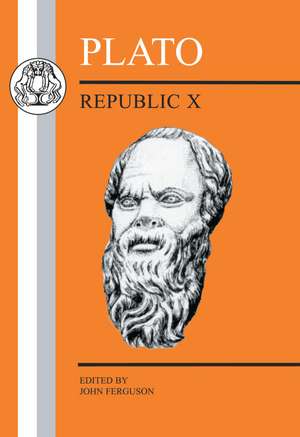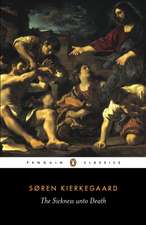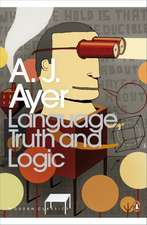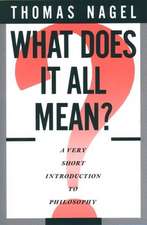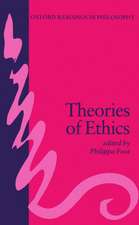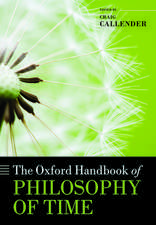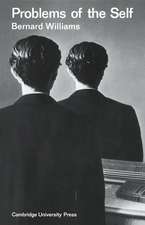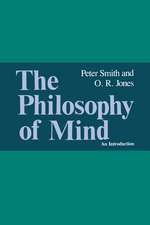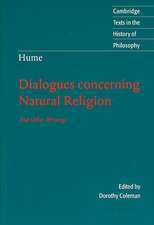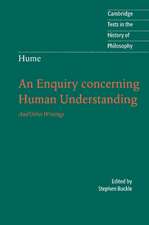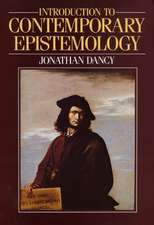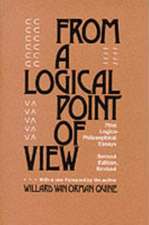Plato: Republic X: Greek Texts
Editat de John Ferguson Autor Platoen Limba Engleză Paperback – 31 mai 2007
Toate formatele și edițiile
Din seria Greek Texts
- 13%
 Preț: 200.89 lei
Preț: 200.89 lei - 17%
 Preț: 241.71 lei
Preț: 241.71 lei - 17%
 Preț: 253.67 lei
Preț: 253.67 lei - 20%
 Preț: 171.64 lei
Preț: 171.64 lei - 14%
 Preț: 171.85 lei
Preț: 171.85 lei - 15%
 Preț: 148.82 lei
Preț: 148.82 lei - 14%
 Preț: 151.94 lei
Preț: 151.94 lei - 13%
 Preț: 199.91 lei
Preț: 199.91 lei - 14%
 Preț: 198.74 lei
Preț: 198.74 lei - 13%
 Preț: 146.36 lei
Preț: 146.36 lei - 14%
 Preț: 164.50 lei
Preț: 164.50 lei - 14%
 Preț: 152.01 lei
Preț: 152.01 lei - 15%
 Preț: 142.89 lei
Preț: 142.89 lei - 14%
 Preț: 196.44 lei
Preț: 196.44 lei -
 Preț: 150.33 lei
Preț: 150.33 lei - 14%
 Preț: 150.50 lei
Preț: 150.50 lei - 14%
 Preț: 196.61 lei
Preț: 196.61 lei - 20%
 Preț: 149.16 lei
Preț: 149.16 lei - 14%
 Preț: 164.40 lei
Preț: 164.40 lei - 8%
 Preț: 197.68 lei
Preț: 197.68 lei - 13%
 Preț: 199.64 lei
Preț: 199.64 lei - 20%
 Preț: 141.46 lei
Preț: 141.46 lei - 13%
 Preț: 199.73 lei
Preț: 199.73 lei - 19%
 Preț: 143.06 lei
Preț: 143.06 lei - 7%
 Preț: 200.08 lei
Preț: 200.08 lei - 14%
 Preț: 144.47 lei
Preț: 144.47 lei - 14%
 Preț: 151.47 lei
Preț: 151.47 lei - 7%
 Preț: 163.08 lei
Preț: 163.08 lei
Preț: 143.66 lei
Preț vechi: 152.57 lei
-6% Nou
Puncte Express: 215
Preț estimativ în valută:
27.49€ • 28.70$ • 22.75£
27.49€ • 28.70$ • 22.75£
Carte tipărită la comandă
Livrare economică 04-18 aprilie
Preluare comenzi: 021 569.72.76
Specificații
ISBN-13: 9781853996825
ISBN-10: 1853996823
Pagini: 182
Ilustrații: 1
Dimensiuni: 129 x 198 x 13 mm
Greutate: 0.18 kg
Editura: Bloomsbury Publishing
Colecția Bristol Classical Press
Seria Greek Texts
Locul publicării:London, United Kingdom
ISBN-10: 1853996823
Pagini: 182
Ilustrații: 1
Dimensiuni: 129 x 198 x 13 mm
Greutate: 0.18 kg
Editura: Bloomsbury Publishing
Colecția Bristol Classical Press
Seria Greek Texts
Locul publicării:London, United Kingdom
Caracteristici
The Greek text with extensive notes; appendices on the theory of Forms, Plato's theory of art, the immortality of the soul and myth in Plato; and a Vocabulary.
Notă biografică
John Ferguson taught at the Universities of Newcastle, London and Birmingham in the UK, as well as Iba'dan, Nigeria, and Minnesota, USA. He was the founding Dean of Arts at the Open University, UK and President of Selly Oak Colleges, Birmingham. His publications include A Companion to Greek Tragedy (1972).
Cuprins
FOREWORDINTRODUCTIONHistorical BackgroundSocratesPlatoThe Platonic SocratesThe Date of the RepublicThe Plan of the RepublicBook XTEXTNOTESAPPENDICES1 The Theory of Forms 2 Plato's Theory of Art 3 The Immortality of the Soul 4 Myth in Plato VOCABULARY
Recenzii
"This trio from St. John's has produced the most high-fidelity English translation of the Meno available. The Introduction offers a no-nonsense summary of the dialogue, and ample footnotes alert the reader to important Greek terms, while also situating significant claims in their historical context as well as in the context of Plato's larger corpus. The Glossary helpfully places the focus on core philosophical concepts, and the Select Bibliography makes for a manageable introduction to some of the standard scholarship. This volume is an all-around success." Charles Ives, University of Washington
"This gem of a dialogue is elegantly rendered into English, masterfully achieving the twin goals of illuminating the Greek and speaking to a modern audience. In its fifth translation of a Platonic dialogue, the team of Brann, Kalkavage, and Salem is at the top of its craft, bringing alive this important Platonic dialogue in search of a definition of virtue." Stephen Scully, Boston University
"The translation stays close to the Greek while remaining clear and lively, allowing the reader to become absorbed in the drama without losing any of the provocative details of the original. The notes provide new and experienced readers with powerful tools for better appreciating both the task of the translator and the drama of the exchange between the characters. This is a first-rate volume for engaging each of the themes raised in the Meno while offering help pulling them all together. It is an excellent point of entry into Platonic dialogues and into philosophy generally, in fine Socratic spirit." Eric Sanday, University of Kentucky
"The appearance of a new translation of a Platonic dialogue by Eva Brann, Peter Kalkavage, and Eric Salem for the Focus Philosophical Library is always exciting, and this edition of the Meno does not disappoint. The translation is highly praiseworthy for its fidelity and lucidity, accurately capturing the vocabulary of the Greek while presenting the text in an engaging, colloquial form that places it among the best English translations of Plato. The book's value is increased by an authoritative but concise introductory overview of the dialogue, extensive historical and linguistic footnotes, and detailed geometric diagrams set directly within the text, rather than in an appendix. These virtues, along with its affordable cost, make this edition a must-have for scholars and an excellent choice for teaching at all levels." Colin C. Smith, Pennsylvania State University, in Bryn Mawr Classical Review
"As one would expect from the team of Brann, Kalkavage and Salem, their edition of Plato's Meno is a fine one. The translation meets their stated goal of remaining 'as faithful as possible to the Greek, while using lively, colloquial English.' Their notes are consistently helpful and will be particularly useful to those readers willing to explore the nuances of Plato's extraordinary prose. Their introduction is clear and compact, and it highlights the most philosophically important themes of the dialogue. One particularly useful feature of this edition is the manner in which it displays the diagrams Socrates draws in order to illustrate his famous 'square within a square.' Instead of relegating them to the notes, it integrates them into the text of the dialogue itself. Readers are able to follow along, and 'watch' Socrates actually construct them." David Roochnik, Boston University
"This gem of a dialogue is elegantly rendered into English, masterfully achieving the twin goals of illuminating the Greek and speaking to a modern audience. In its fifth translation of a Platonic dialogue, the team of Brann, Kalkavage, and Salem is at the top of its craft, bringing alive this important Platonic dialogue in search of a definition of virtue." Stephen Scully, Boston University
"The translation stays close to the Greek while remaining clear and lively, allowing the reader to become absorbed in the drama without losing any of the provocative details of the original. The notes provide new and experienced readers with powerful tools for better appreciating both the task of the translator and the drama of the exchange between the characters. This is a first-rate volume for engaging each of the themes raised in the Meno while offering help pulling them all together. It is an excellent point of entry into Platonic dialogues and into philosophy generally, in fine Socratic spirit." Eric Sanday, University of Kentucky
"The appearance of a new translation of a Platonic dialogue by Eva Brann, Peter Kalkavage, and Eric Salem for the Focus Philosophical Library is always exciting, and this edition of the Meno does not disappoint. The translation is highly praiseworthy for its fidelity and lucidity, accurately capturing the vocabulary of the Greek while presenting the text in an engaging, colloquial form that places it among the best English translations of Plato. The book's value is increased by an authoritative but concise introductory overview of the dialogue, extensive historical and linguistic footnotes, and detailed geometric diagrams set directly within the text, rather than in an appendix. These virtues, along with its affordable cost, make this edition a must-have for scholars and an excellent choice for teaching at all levels." Colin C. Smith, Pennsylvania State University, in Bryn Mawr Classical Review
"As one would expect from the team of Brann, Kalkavage and Salem, their edition of Plato's Meno is a fine one. The translation meets their stated goal of remaining 'as faithful as possible to the Greek, while using lively, colloquial English.' Their notes are consistently helpful and will be particularly useful to those readers willing to explore the nuances of Plato's extraordinary prose. Their introduction is clear and compact, and it highlights the most philosophically important themes of the dialogue. One particularly useful feature of this edition is the manner in which it displays the diagrams Socrates draws in order to illustrate his famous 'square within a square.' Instead of relegating them to the notes, it integrates them into the text of the dialogue itself. Readers are able to follow along, and 'watch' Socrates actually construct them." David Roochnik, Boston University
Descriere
Descriere de la o altă ediție sau format:
The second edition of Five Dialogues presents G. M. A. Grube's distinguished translations, as revised by John Cooper for Plato, Complete Works . A number of new or expanded footnotes are also included along with an updated bibliography.
